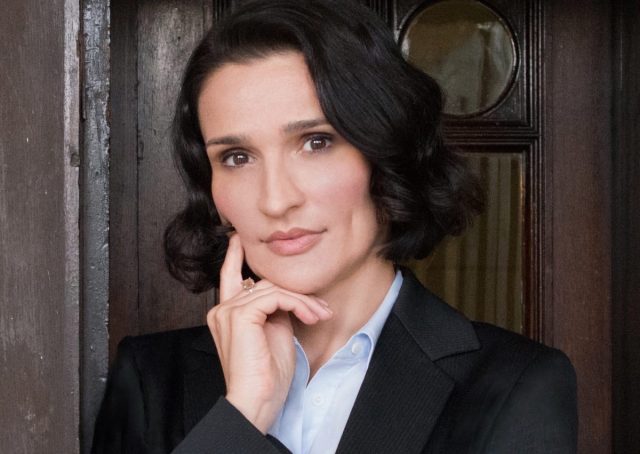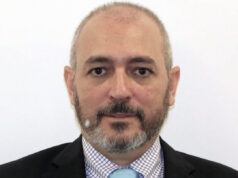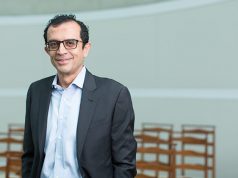Family offices are set up for generations, therefore, they keep a long-term perspective on doing business and investing. As for many of them engagement in sustainability through strategic philanthropy and framing business operations accordingly has been a part of their legacies, embracing sustainable and impact investing is a natural step forward. Given the fact that family offices have a unique profile, including expertise and flexibility in allocating assets, they may serve as a role model in an ongoing global transition towards impact investing. With an estimated $5.9 trillion of assets under management globally, family offices are well positioned to make meaningful positive impacts as well as maintain a sense of accountability and mission across generations at the same time.
The recent Campden Wealth Study of Family Offices shows a significant increase in portfolio allocations into sustainable investing – from 20% to 36% between 2019 and 2020, predicted to rise up to 47% by 2022, and further to 54% by 2027. Similarly, the UBS 2020 Global Family Office Report shows that 60% of surveyed family offices perceive sustainable investing as key to maintain sustainability engagement legacies. The study also suggests that those who are already engaged in sustainable investing expect 50% of their portfolios to be sustainability-aligned by 2022. Furthermore, 39% of those surveyed expect to engage even more in coming years.
The prominent examples of sustainability engagement and impact investing among family offices include: Bertarelli family – Bertarelli Foundation (Switzerland), focusing on marine protection, health and life science, Kaiser family – Kaiser Partner Privatbank (Liechtenstein), a pioneer in responsible investing, Grajales family and Inversiones Brembo (Colombia), investing with sustainability and impact lenses, Dilmah family and Dilmah Tea & Conservation (Sri Lanka) using impact investing approach, Kulczyk family – Kulczyk Foundation (Poland), working towards alleviating inequalities and supporting start-ups through the Incredible Academy, and Bulgheroni family via Fundación Educando (Argentina), offering free education and job trainings to less privileged groups.
Steps to Generate Impact
Engagement of family offices in sustainable and impact investing currently varies. While some are at their beginnings, others have already incorporated sustainability principles into investment decision-making, says Bertelsmann Foundation Report. In order to accelerate this transition internally, it is essential to establish a leadership team and increase engagement and awareness among employees, through trainings. Communicating progress in this domain as well as an impact achieved is crucial too. Once the family office makes the first move, it is likely to continue along a sustainable investing path, the report suggest. Among the advantages, stemming from undertaking an impact investing approach are:
– longer-term horizon of investments
– contribution to solving global and regional problems / UN SDGs
– co-creation of powerful innovative products and services
– intergenerational transfer of values
– enhanced a mission-driven image
– verifiable and measurable sustainability impacts of investments
How family offices can ensure that their investments truly meet sustainability and impact criteria? The first step is to design a sustainable investing strategy. A family office may choose between sustainable-themed, ESG-aligned, SDGs-aligned or impact investing approach. The latter one, it is important to note, experienced the highest 70% growth among all sustainable investment strategies in 2020.
Impact investing strategy is defined by generating significant positive socio-environmental out- comes and requires credible justification, backed with properly performed assessments. Standards such as RIS (Impact Reporting and Investment Standards), GIIRS Rating (Global Impact Investing Rating System), or SASB help to frame solid impact investing strategies. There is no consensus, however, how to measure an investment contribution to specific SDGs and their targets, given that it remains in most cases a manual process. A credible impact assessment, on the other hand, should include: materiality analysis, definition of objectives with related targets and metrics, moni- toring and reporting. Measuring an investment impact on UN SDGs should cover an assessment of investments alignment to specific SDGs goals and targets, and assessment of overall impacts.
Impact Themes, Funds & Start-Ups
Family offices nowadays have a choice to allocate capital and expect positive impacts in emerging, underdeveloped or developed economies as well as to choose among various investment themes. While education, poverty and the arts have traditionally benefited from wealthy families’ support, now nature, biodiversity and climate crisis are gaining their particular attention. The top impact investment topics in recent years were: water, environment, microfinance, energy, housing and community development, according to the Swiss Sustainable Finance’s market study.
The Campden Wealth study confirms a significant increase in interest of family offices in environmental and social aspects of investments: 86% of high net worth individuals, family offices and foundations believe their capital is key in addressing climate change, while transition to net zero economy is “the greatest commercial opportunity of our age”. A green industry, therefore, with a focus on renewable energy, low-carbon transport, energy-efficient buildings, clean technologies, waste management or sustainable agriculture bring a great impact investment opportunity for wealthy families.
Family offices may also take a leadership role in educating and expanding an impact investing ecosystem. By investing in impact start-ups or impact funds early on, they may influence and co- develop their strategies. A success of a Snowball multi-asset impact investment fund, co-founded by Alexander Hoare, proves that: “it is possible to invest money positively whilst making a sound financial return and to ensure all investors – no matter how much money they have – can invest in this way.”
Conclusions
Family offices are increasingly involved in sustainable and impact investing, and for many of them it is a natural step forward, reflecting their values, legacy and support for resolving global challenges. Given the fact that sustainable and impact investing offer novel opportunities along with value for society at large, family offices have now a unique opportunity to take a lead, serve as a role model in an ongoing transition, educate and accelerate this trend, and contribute to greater positive impacts globally.
| about
Dr Katarzyna Wilk is CEO of Swiss Impact Lead, an impact investing advisory and impact start-ups platform, based in Zurich. Swiss Impact Lead offers a design of impact funds, portfolios and policies, screenings and verification, and assistance in ESG/SDGs data analysis and operationalisation. Swiss Impact Lead also supports growth of impact start-ups and links them with investors.
Dr Wilk serves also as a President of Swiss Impact Lead Foundation, contributing to sustainable finance education and supporting start-up founders through the SIL Certification™ program.
References
“Families Ramp Up Sustainable and Impact Investments in Response to COVID-19 and Climate Change.” Retrieved from https: //campdenfb.com/ar ticle/families-ramp-sustainable-and-impact- investments-response-covid-19-and-climate-change
“How to Increase Family Office Engagement in Impact Investing.” Bertelsmann Foundation Report, July, 2020.
“Investing for Global Impact: A Power for Good.” Campden Wealth Report. Retrieved from http://www.campdenresearch.com/content/investing-global-impact-power-good-2021
“UBS 2020 Global Family office Report.” Retrieved from https://www.ubs.com/global/en/global- family-office/reports/global-family-office-report-2020.html
| investESG.eu is an independent and neutral platform dedicated to generating debate around ESG investing topics. All opinions expressed are those of the author or contributing source.








